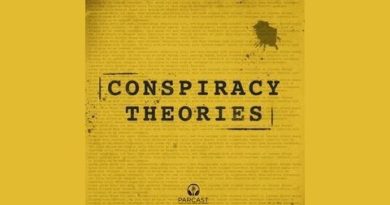Thee McIlvaine Family’s Struggle to Make Sense of 9/11

Every weekday evening, our editors guide you through the biggest stories of the day, help you discover new ideas, and surprise you with moments of delight. Subscribe to get this delivered to your inbox.
He was 26. He didn’t even work in the World Trade Center—just nearby. He was only there that morning to help a friend set up for an event.
After Bobby McIlvaine died on September 11, 2001, his loved ones began trying to make sense of their grief. His mother, Helen, kept hers close. His father, Bob Sr., turned to conspiracy theories. And his would-be fiancée clung to Bobby’s final diary.
Our latest magazine cover tells their stories. Written by Jennifer Senior, a staff writer whose brother lived with Bobby in New York at the time of the attack, the piece looks at the ways grief moves—or doesn’t—through different people over time. Read it in full.
I spoke with Jen today about the story—and what it teaches us about grief.
The conversation that follows has been edited and condensed for clarity.
What was the most striking thing you learned about grief while working on this piece?
That some people really need it. That they need to feel pain. That getting better is not really something they’re interested in doing. When we tell people to “move on” and “get past things,” it may be a kind of tyranny.
What was striking to me was how very different Bob and Helen were. They were almost photo negatives of one another. Bob really lived inside that grief, and he still lives inside that grief. And Helen has no interest in being a victim at all. She found the whole idea just viscerally unappealing, and it violated some basic part of her nature.
I marveled at the fact that they made their marriage work given that they needed to grieve in such different ways—and each in ways the other, I think, found genuinely baffling. What bonded them, clearly, was how hurt they were, and how much they loved their son, and that no one could understand what their pain was—no one besides the other.
Today, we’re once again in the middle of a horrific mass-death event. Did working on this story offer you any hints about how we might remember the tragedy of the pandemic two decades from now?
Americans’ epistemological differences have only grown in the last 20 years. In hindsight, you could look at the 9/11 truther movement and say that was the first really pronounced example of people choosing their own realities to process a mass event since the advent of the internet.
In terms of grieving, I don’t know, because we grieved very differently back then. We still felt like we were one country.
The news in three sentences:
(1) The Pentagon will require all military personnel to get vaccinated for COVID-19. (2) A new United Nations report on global warming is, well, a grim one. (3) Devastating wildfires are raging across Greece’s second-largest island, Evia.
What to read if … you’re looking for practical advice on how to manage your risk in light of Delta:
Tonight’s Atlantic-approved activity:
End your day with a poem. Here’s “Attention” by Leila Chatti.
A break from the news:
Reiki can’t work. So why does it?
Atlantic Movie Club:
This month, our movie critic David Sims is revisiting some of the most-celebrated films of 2001, and examining how they shaped modern cinema.
Each week, we’ll pick a genre and have you pick a film for David to discuss. This week, we’re looking at 2001’s franchise films. Which movie should we watch together?
Vote on Twitter or by replying to this email with your choice. Check back Friday to see the winner and read David’s thoughts.
If you are just tuning in, catch up on what we’ve watched so far.
Every weekday evening, our editors guide you through the biggest stories of the day, help you discover new ideas, and surprise you with moments of delight. Subscribe to get this delivered to your inbox.
*** This article has been archived for your research. The original version from The Atlantic can be found here ***


